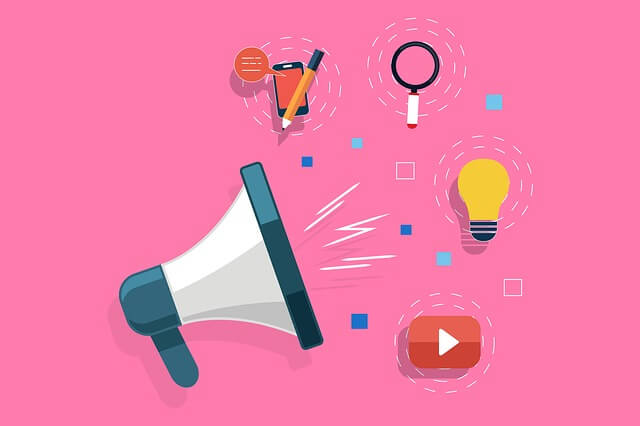You’ve spent a lot of time on your business. You’ve identified your customers. You’ve developed a service they don’t just want but actually need. You may have even spent thousands of dollars and countless hours on developing a full scale digital marketing campaign. But there’s one critical element missing: Your content strategy.
Content marketing strategies may seem like you’re giving your audience something for nothing. That’s because you are. Your customers don’t just want an attractive website. And they’re a lot less concerned with SEO than you are. What they want is value. They want relevant information they can’t get anywhere else. Original information. Engaging information. And they want it consistently and frequently.
No, it’s not always simple to measure the ROI of a content strategy. That’s because metrics rely on long term engagement in the form of customer loyalty, not an immediate return. But that long term engagement is one of the fundamental drivers of consistent sales. What’s more, content strategy doesn’t just mean customer engagement. It means branding your business with a unique identity. One based on authority, not hype. Here’s how to get started developing your best content strategy.
Identify Your Goals And Objectives
Consider the bottom line of your business. It’s fair to say we all want more sales. But are you willing to actually expand your business? Is your infrastructure prepared for growth? What part of your business identity can you sacrifice in order to affect a business process change?
One way to identify goals and objectives is to compartmentalize them into quantifiable metrics. If business growth is the ultimate goal, think about the steps in which content marketing can achieve it. Measure your current customer engagement. Your visibility. Your traffic. Both short term and long term revenue generation. If you fail to see any significant traction in any of these after six months, you may want to re-evaluate your content marketing strategy.
Have A System In Place To Measure Performance
Key performance indicators (KPIs) will help you measure the efficacy of your content strategy. And while KPIs will vary based on your personal business goals, consider some of the following as measurable objectives:
- Revenue targets
- New email subscribers
- Search ranking in major engines
- An increase in site traffic
- Social media shares and mentions
- Sales lead generation
These aren’t abstract figures. These are objectives which should have a definitive number attached to them. And without that measurable number, you’re simply second guessing the performance of any strategy.
Reconsider Your Audience
You may have defined your target demographic in terms of their age, their income or their gender. But what do you really know about them? What are their motivations? Their interests? Their lifestyle habits?
In the past, larger businesses conducted in-depth qualitative research through survey collection and focus groups. And while both can be effective, they’re not in the least bit cost effective for smaller companies. Luckily, there’s numerous analytic tools available for free from Google, Facebook and Twitter which not only can help you track your engagement but give you a much clearer understanding of your audience than any expensive market research survey.
Develop A Buyer Persona
It’s one thing to have generalized data at your fingertips. It’s another to understand it at a personal level. Buyer personas help you do just that. By creating a fictionalized representation of target segments, you can streamline your content strategies by tailoring each campaign to reach a specific persona. Auditing your sales funnels to find both strong and weak ties can help you develop a buyer persona which gives you a sense of your own marketing efficacy, and help you develop a much smarter campaign in the process.
Generate Effective Content
One of the huge mistakes many businesses make in content marketing is repeating the same information over and over again. This doesn’t just make you look lazy. This makes your brand identity look one dimensional and incomplete.
Customers expect the brands they purchase to be as nuanced as they are. If you’ve reviewed your audience consistently, what trends they’re following and developed a well crafted buyer persona based on their motivations, you should have no trouble generating content that speaks to them directly—and in a tone they’ll understand. What speaks to a pre retiree will not necessarily speak to a millennial holding down multiple jobs. Individualize your content. Don’t fall into the trap of assuming your marketing strategy is suited for all demographics. It might save you time, but it will cost you sales.
Identify The Right Platforms For The Right Audience At The Right Time
Your business blog is probably going to be more detailed than your Twitter updates. And what’s effective for LinkedIn is not going to be effective for Instagram. Learning which platforms reach particular audience segments isn’t a question of trial and error. It’s a question of knowing the difference between them. And analytic tools can help make the process much more efficient—so long as you’re willing to take the time to learn them.
Regular content generation can be a time consuming process, particularly with tailored content. That’s why scheduling platforms like Buffer and CoSchedule can be an absolute life saver. By centralizing each piece of content in one place, you don’t have to set yourself a reminder to post. Think of them as your own virtual assistant. It may not generate the content you need, but it will make your business processes that much simpler.
Measure And Compare Your Results
Six months is an ideal point to start tracking the efficacy of your content strategy. You might see dramatic results in your KPIs, or you might only see moderate growth. But if you’re not seeing any change whatsoever, you need to re-examine your marketing strategy and try to understand what you’re not doing effectively.
Good content strategy takes time to both develop and measure. You’re not going to see change overnight, despite the constantly changing face of digital communications. But you will see change. And if applied correctly, you will see growth far beyond what you expected.
Here’s hoping you’re prepared for it.
At No Joke Marketing, we’ve been developing content strategies for small businesses since 2013. We’re not going away any time soon. Visit us today at No Joke Marketing.








